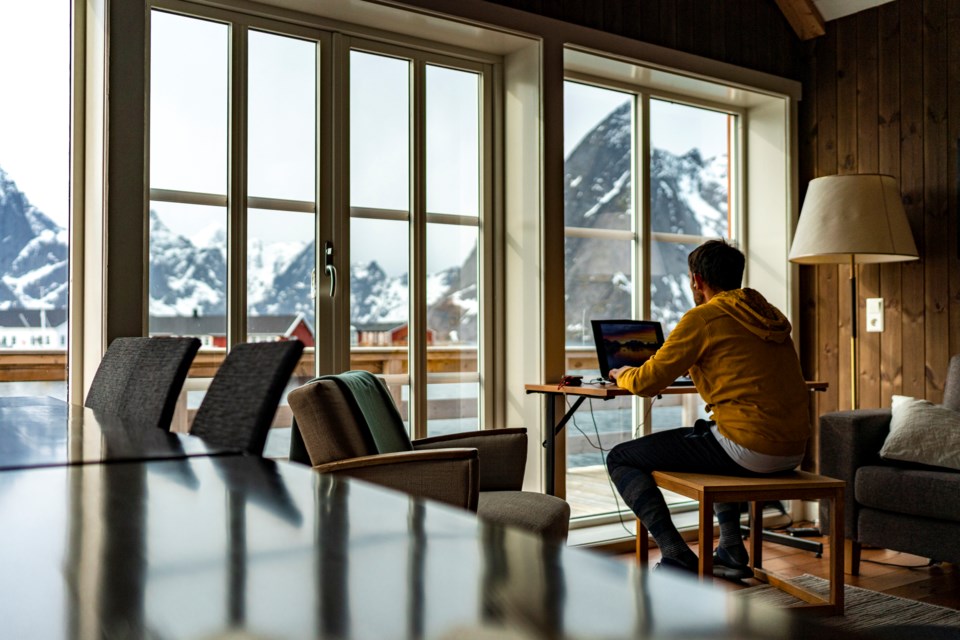The pandemic forced the world to learn how to work together in isolation.
As we emerge from the fog of viral war, many employees are left with memories of laptops on laps, sleeping in, sporadic work schedules and zero commutes. Indeed, the quality of life for many employees during the pandemic grew to an all-time high.
It’s not surprising that many employees would like to continue to work remotely.
The pendulum, however, continues to swing and remote workers based in B.C. should be very careful about what they wish for.
Remote work eliminates the local economy. Companies that successfully embrace remote workforces are already realizing that they can employ workers in foreign countries at discounted rates.
Employers also have gained access to employees working in diverse time zones, enabling their workday productivity to grow from local hours to around-the-clock.
Lower competitive wages and triple the available work hours is a compelling incentive for B.C. companies to diversify their remote workforce across time zones and economies.
The fact is, the only borders remaining in our global economy are language borders.
One has to wonder why a B.C.-based company would continue to employ local remote workers at premium local rates.
Over the long term, they won’t.
It’s not all doom and gloom, however, for local remote workers. Many have started to realize that they can apply for remote work in countries like the USA with higher comparative salaries coupled with currency premiums. The time zones are similar and when one adds the currency exchange on top of U.S. pay rates, local remote workers can earn a premium above local employers.
Living in Vancouver while working for a techno-giant in Silicon Valley would be a dream gig for any local professional. In the future, the challenge is that those roles can also be filled by Second and Third World workers in their local economies. Why hire a British Columbian remote worker when an Indian professional with a legitimate MBA is available to work through the local night at 50 per cent of the cost?
The next 10 years will see the pendulum continue to swing, and if capitalism remains true to form, the wage disparity between remote workers around the world will flatten.
First World remote workers will choose to accept lower pay in return for the luxury of working from home and remote workers from less advanced economies will see pay raises supporting newfound economic growth in their local markets. Globalization will lift millions of people’s quality of life while at the same time pressure our local remote workers in BC to find new ways to create value from the comfort of their homes.
Don’t think for a second that this is only a remote possibility.
Neil Belenkie is the CEO of Ascent Drywall and Coatings, a serial entrepreneur, and former mayor of Belcarra.




